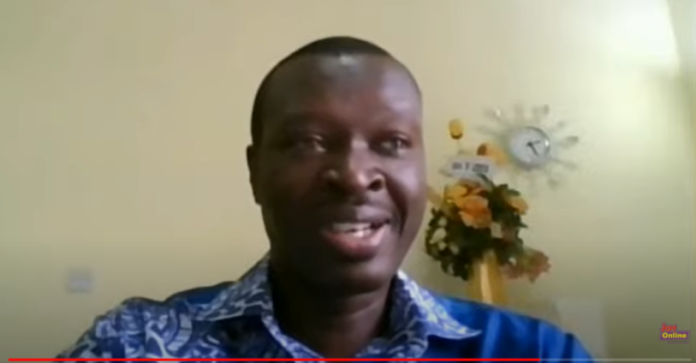The Co-Chair of the Citizen Movement Against Corruption, Edem Senanu is skeptical about the effectiveness of digitalisation alone in combating corruption.
Mr Senanu argued that while digitalisation can play a role, it is insufficient without instilling strong values in the individuals operating these systems.
Speaking on Joy FM’s Top Story on Monday, August 19, he explained that even with digitalization, human involvement can still lead to corruption while citing the school placement system to illustrate his point.
“The digitisation, in theory, yes, but look at what happened when we talked about school placement. Digitising school placement after a certain point, we realized, again that it is human beings that manage these placements and so if you don’t take on board the issue of, as it were, the values, you know, public education in ingraining these values that people espouse, honesty, integrity, hard work, that’s just not going to be enough.
“Digitalization might work to some extent but the people managing the digitized systems, when they become corrupt, they are going to make sure that it doesn’t work. So I’m not entirely excited at the gamut of things that have been captured,” he explained.
Mr Senanu’s comments were in response to a promise made by NPP flagbearer Dr. Mahamudu Bawumia, who vowed to digitise all procurement processes to enhance transparency and curb corruption.
However, Senanu says that more practical measures are needed to address corruption effectively.
He added “I think there are pressing, current issues that have occurred during their tenure that they need to address. They should demonstrate that they’ve learned from these experiences, understand what went wrong, and have a clear plan to fix it. This approach would be far more compelling than what they are offering at the moment.”
Additionally, he advocated for lifestyle audits, similar to those conducted in other jurisdictions, as a stronger measure against corruption. He also called for the implementation of the existing Conduct of Public Officers Bill, which has been pending for over two years, rather than proposing new laws.
Mr Senanu further questioned why Dr. Bawumia’s proposed anti-corruption measures are not being implemented now.
“Our experience with manifestos is that they are often just talk with no action. Until and unless these proposals are shown to be actionable immediately, there is a disconnect,” he added.
Responding to Senanu’s critique, Dr. Isaac Owusu Mensah, the Coordinator of the Bawumia Manifesto Committee, acknowledged that no single individual can eradicate corruption, emphasizing that it is a collective responsibility.
He noted that while their plan may not achieve 100% success, it represents an improvement in the current situation.
“… of course, we are not at the 100% state as Senanu is looking for, but what we are being is an improvement of the current status,” he noted.

